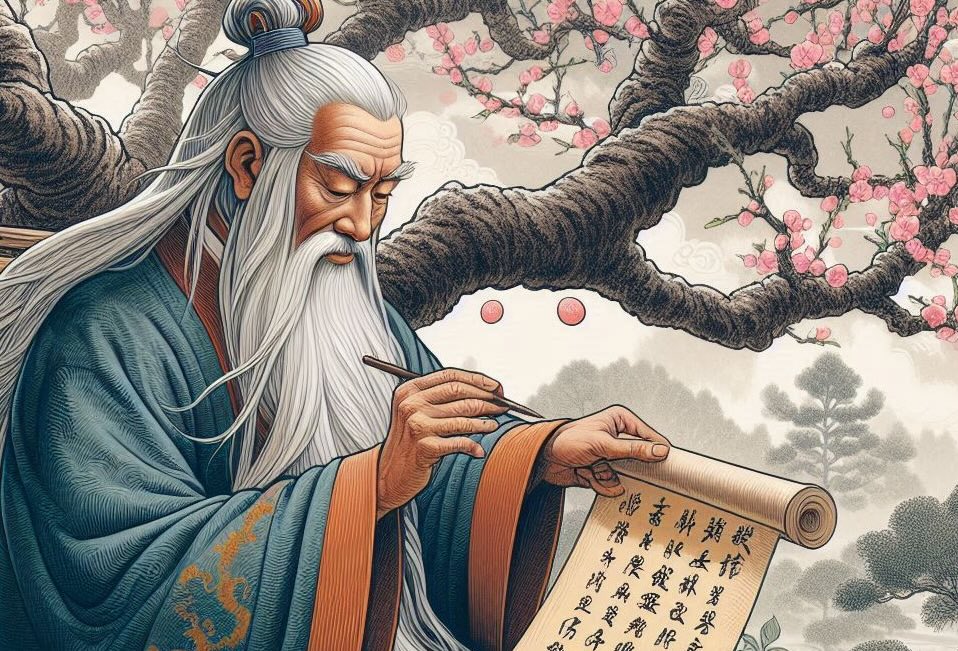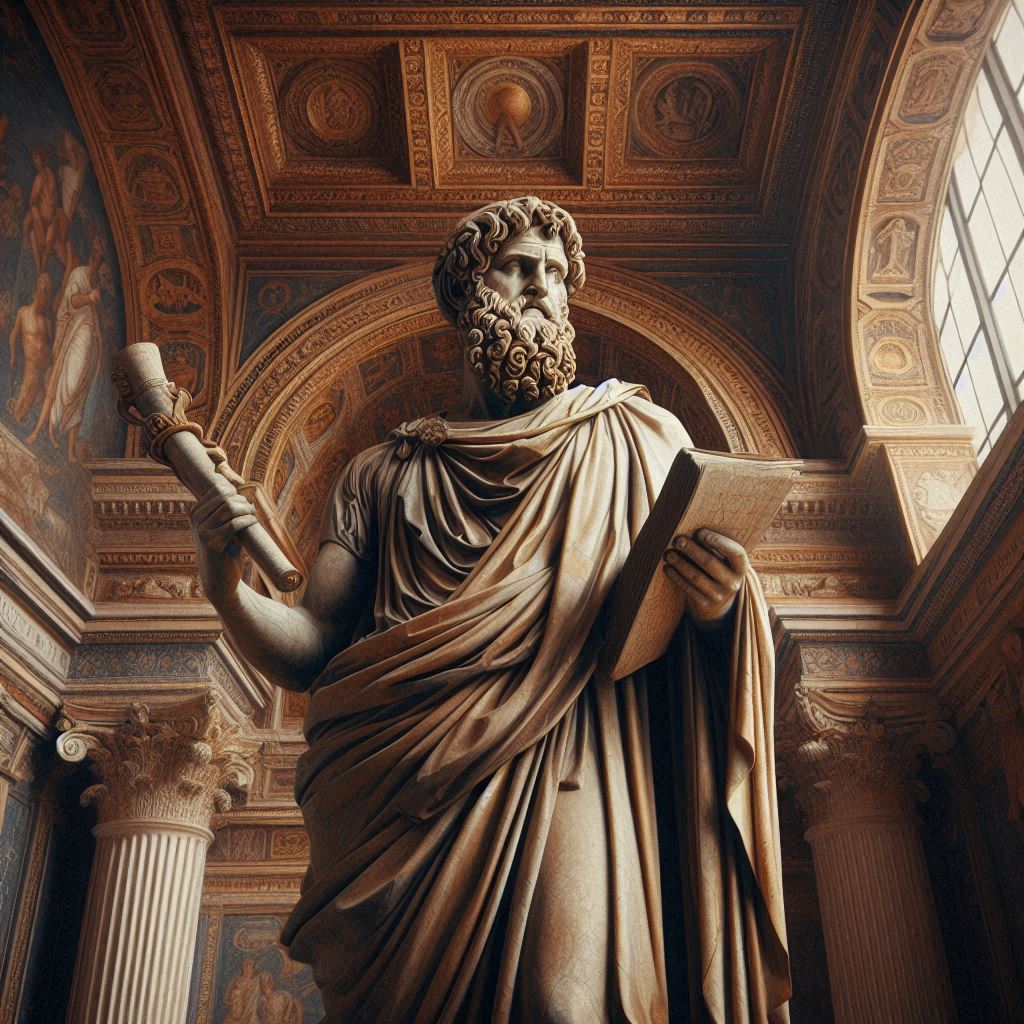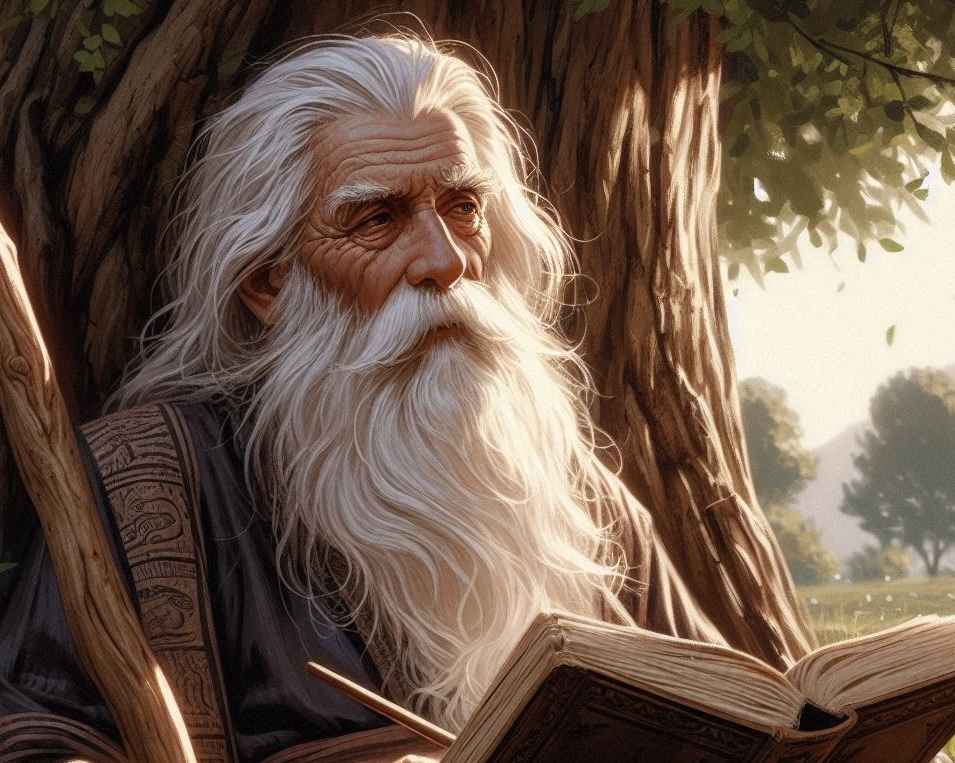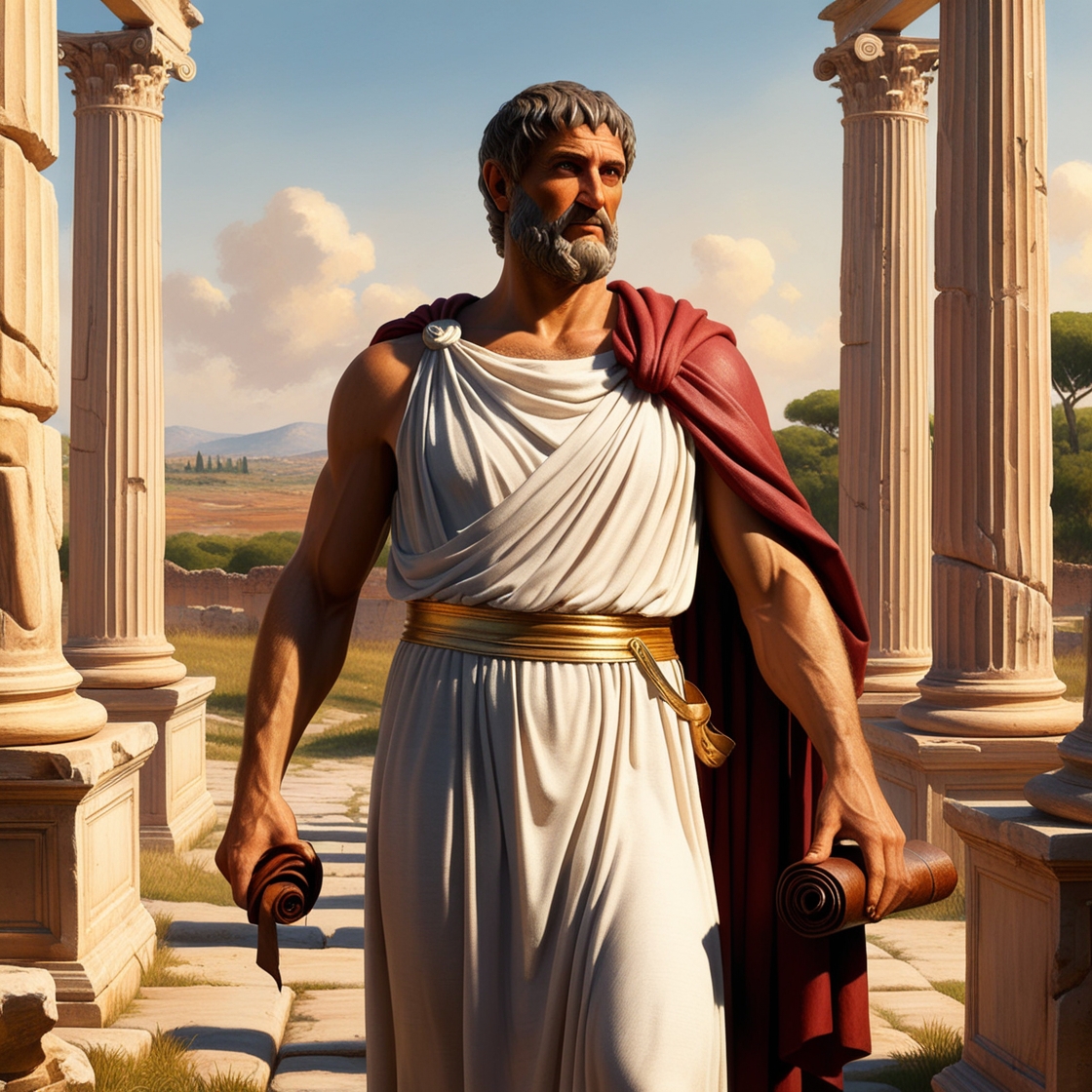· Person
Marcus Aurelius
Roman emperor and a Stoic philosopher, best known for his personal writings, "Meditations".
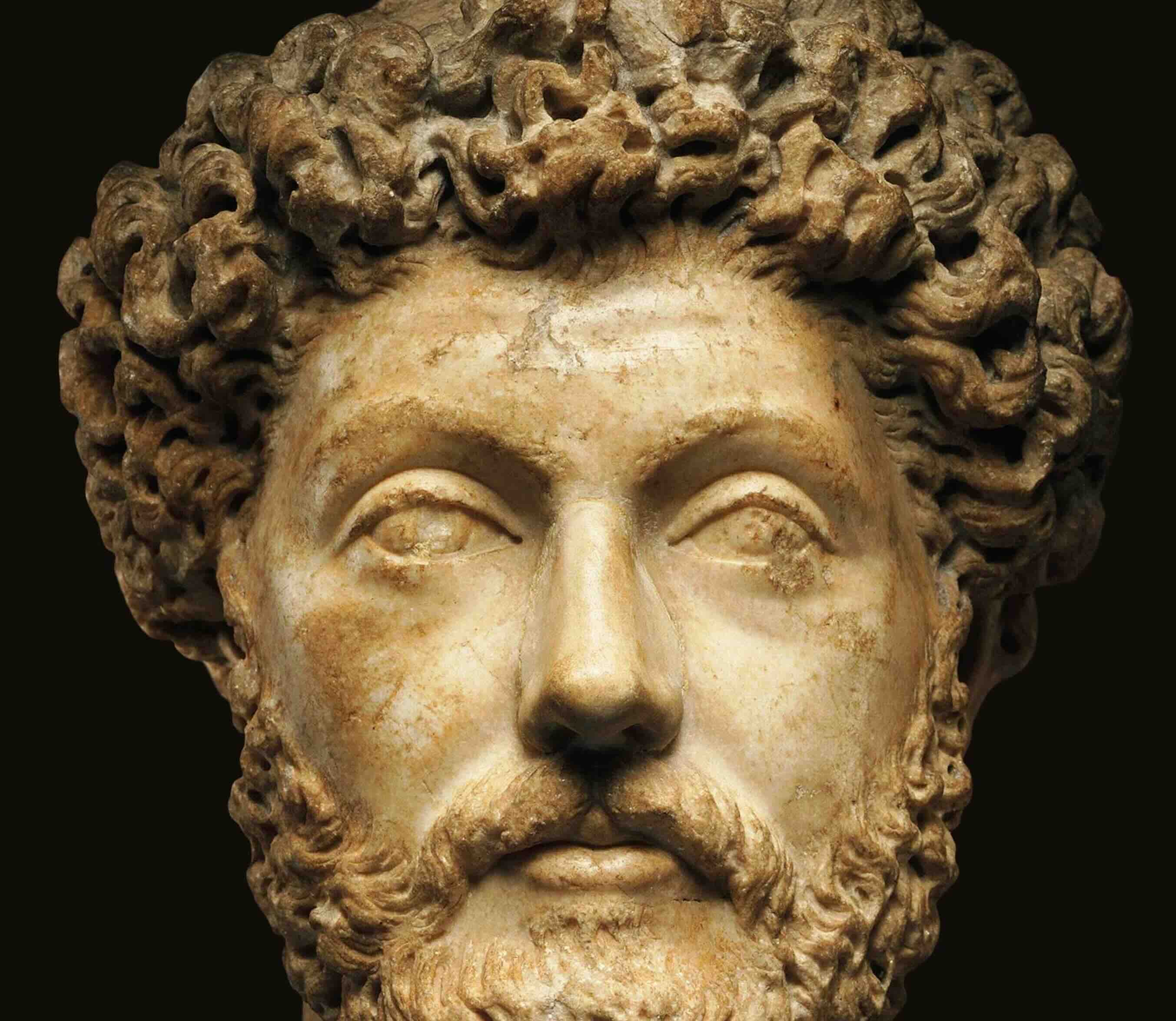
Marcus Aurelius
Marcus Aurelius (121 AD – 180 AD) was a Roman emperor (161–180 AD) and a Stoic philosopher, best known for his personal writings, “Meditations,” which reflect his Stoic beliefs and provide guidance on resilience, leadership, and personal growth. He is often regarded as the “Philosopher King”, embodying the principles of Stoicism while ruling the Roman Empire.
Key Aspects of Marcus Aurelius’ Life and Philosophy
1. Early Life and Education
- Marcus Aurelius was born into a prominent Roman family and was adopted by Emperor Antoninus Pius, making him heir to the throne. He received a strong education in Stoic philosophy from tutors like Junius Rusticus, and was influenced by the works of Stoics such as Epictetus.
- His upbringing prepared him to combine philosophical wisdom with the practical demands of leadership.
2. Reign as Roman Emperor
- Marcus Aurelius became emperor in 161 AD, and his reign was marked by significant challenges, including wars on Rome’s borders, political instability, and a devastating plague known as the Antonine Plague.
- Despite these hardships, Marcus continued to apply Stoic principles to his governance, striving to remain calm, rational, and just in the face of adversity. He co-ruled with Lucius Verus until Verus’ death in 169 AD, after which Marcus ruled alone.
3. “Meditations”
- “Meditations” is a collection of Marcus Aurelius’ personal reflections, written during his military campaigns. These writings were not meant for publication and serve as a personal journal of his Stoic thoughts.
- The work is divided into 12 books and contains passages on self-discipline, virtue, duty, and resilience. It offers practical advice on how to live according to Stoic philosophy, focusing on maintaining inner peace despite external turmoil.
4. Core Stoic Teachings in “Meditations”
a. Control and Acceptance
- Marcus Aurelius emphasized the importance of focusing on what is within one’s control—one’s own thoughts, actions, and responses—while accepting what is beyond control, such as external events.
- Famous quote: “You have power over your mind—not outside events. Realize this, and you will find strength.”
b. The Impermanence of Life (Memento Mori)
- Marcus often reflected on the shortness of life and the inevitability of death, encouraging others to live fully in the present and act virtuously.
- Famous quote: “Do every act of your life as though it were the last act of your life.”
c. Obstacles as Opportunities
- A key theme in his philosophy is the idea that obstacles can be transformed into opportunities for growth. Challenges and hardships should be embraced as they help to build character and wisdom.
- Famous quote: “The impediment to action advances action. What stands in the way becomes the way.”
d. Living According to Nature
- Like other Stoics, Marcus believed in living in accordance with nature and reason. He stressed the interconnectedness of all people and the importance of contributing to the greater good through virtuous actions.
- Famous quote: “What injures the hive injures the bee.”
5. Leadership and Stoic Governance
- Marcus Aurelius practiced Stoic leadership, emphasizing humility, justice, and service to the people. He believed that a ruler’s duty was to serve the greater good, not to pursue personal ambition or power.
- His rule is often regarded as one of the last periods of the Pax Romana (Roman peace), and his Stoic approach to leadership became a model for future generations of leaders.
6. Stoic Virtue and Ethics
- Marcus Aurelius consistently emphasized the importance of the Stoic virtues—wisdom, courage, justice, and temperance—as the foundation for a good life.
- He taught that by cultivating these virtues, individuals could achieve inner peace and live in harmony with the world, regardless of the challenges they faced.
7. Influence and Legacy
- Marcus Aurelius’ “Meditations” has had a profound influence on both ancient and modern thought. His reflections on Stoic principles have inspired countless leaders, philosophers, and everyday individuals seeking guidance on how to live a virtuous and resilient life.
- His philosophy is still widely studied and applied today, particularly in the fields of leadership, psychology, and self-improvement.
Conclusion
Marcus Aurelius is remembered not only as a powerful Roman emperor but also as a profound Stoic philosopher. His work “Meditations” continues to serve as a guide for those seeking to develop resilience, live virtuously, and find inner peace. His life and teachings embody the Stoic ideals of wisdom, duty, and acceptance, offering timeless wisdom for navigating life’s challenges.
Here are some amazing quotes from Marcus Aurelius:
"The best revenge is not to be like your enemy."
"Waste no more time arguing about what a good person should be. Be one."
"You have power over your mind – not outside events. Realize this, and you will find strength."
"The happiness of your life depends upon the quality of your thoughts."
"If it is not right, do not do it; if it is not true, do not say it."
"What we do now echoes in eternity."
"It is not death that a man should fear, but he should fear never beginning to live."
"To love only what happens, what was destined. No greater harmony."
"External things are not the problem. It’s your assessment of them. Which you can erase right now."
"Be tolerant with others and strict with yourself."
"If you are pained by any external thing, it is not this thing that disturbs you, but your own judgment about it."
"The more man meditates upon good thoughts, the better will be his world and the world at large."
"The things you think about determine the quality of your mind."
"Do every act of your life as though it were the very last act of your life."
"The soul becomes dyed with the color of its thoughts."
"Take a deep breath. Get present in the moment and ask yourself what is important this very second."
"Accept whatever comes to you woven in the pattern of your destiny, for what could more aptly fit your needs?"
"Time is like a river made up of the events which happen, and its current is strong; no sooner does anything appear than it is swept away."
"The art of living is more like wrestling than dancing."
"The only way to gain respect is to be good at what you do."
"Remember that very little is needed to make a happy life."
"If you want to be successful, learn to view the failures of life as lessons."
"Learn to be indifferent to what makes no difference."
"Choose not to be harmed — and you won’t feel harmed. Don’t feel harmed — and you haven’t been."
"Dwell on the beauty of life. Watch the stars, and see yourself running with them."
"Self-control is strength. Right thought is mastery. Calmness is power."
"The obstacle is the way."
"Do not act as if you had ten thousand years to throw away. Death stands at your elbow; be good for something while you live and it is in your power."

